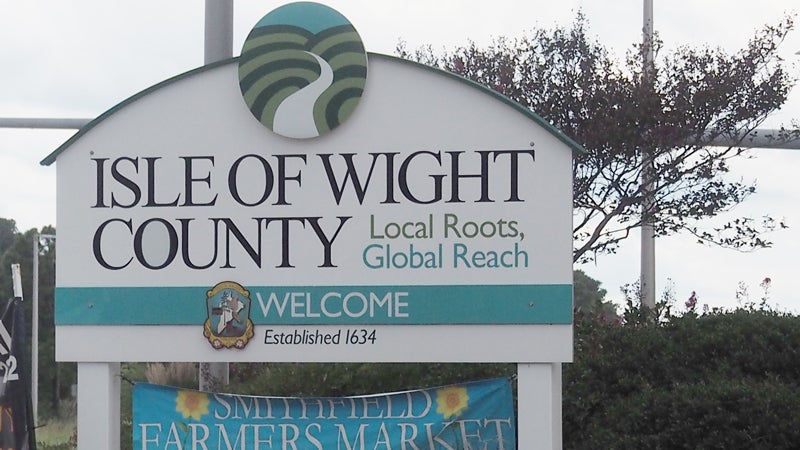Isle of Wight votes down three-year reassessment
Published 2:30 pm Thursday, October 24, 2024

- FIle photo
Isle of Wight County supervisors voted unanimously on Oct. 17 to kill a proposed switch to a three-year cycle for reassessing real estate for purposes of tax valuations.
The vote means the county will continue to reassess property values every four years. When it last did so in 2023, a 34% average rise in single-family home valuations cost many homeowners several hundred dollars more on their real estate tax bills.
Under the current cycle, the next reassessment will begin in 2026 with new valuations taking effect July 1, 2027.
Commissioner of the Revenue Gerald Gwaltney had in August proposed switching to a three-year cycle to lessen the sticker shock come 2027 while simultaneously capturing the revenue impact of a continued uptick in the sale prices of Isle of Wight County homes.
As of July 1, 2023, the county had a 97% “sales ratio,” which Gwaltney said refers to the gap between a home’s assessed value and sale price. That ratio had fallen to 89% as of July of this year, meaning homes were selling for roughly 8% more than they were in mid-2023. At the Oct. 17 meeting, Gwaltney estimated the sales ratio had risen to 91%, meaning homes are still selling for roughly 6% higher than they were last year.
The average assessed valuation of a new single-family home in Isle of Wight, according to the county’s adopted 2024-25 budget, is $523,000, up $214,000 from the year before due to the 2023 reassessment. Last year’s increased valuations were so substantial that the supervisors reduced the county’s real estate tax rate from 85 cents per $100 in assessed value in 2022 to 71 cents in 2023, but had upped the rate to 73 cents effective July 1 of this year.
The 2-cent increase should have equated to an additional $104.60 due annually on an average $523,000-valued house. But, according to Supervisor William McCarty, “we actually had some fixed-income seniors in our community see a $100 or more a month increase” due to how the new rate affected insurance and mortgage payments.
“I struggle with anything that is giving a trajectory of more things that could have those potential increases, especially when you preempt those discussions with ‘well, the market’s continuing to rise, the values are continuing to rise,’” McCarty said. “For some of our fixed-income seniors that’s a frightening thing.”
“To me it’s bad enough we have to do it every four years and I say that very broadly,” said board Chairman Joel Acree. “To go to three, I just don’t know, if I wanted to sell it, how I could sell it as a positive.”
“I feel like moving it from a four-year to a three-year just means you’re paying more sooner for the majority of the people,” said Supervisor Renee Rountree.
In addition to bringing in more real estate tax revenue sooner than 2027, increasing the reassessment frequency would have impacted the revenue the county receives annually from public service corporation taxes. Certain types of real estate such as assets owned by utilities like Dominion Energy pay public service corporation taxes that are calculated by the state based on a locality’s sales ratio.
But the reassessment itself would cost an extra $50,000 per year to reassess every three rather than four, Gwaltney estimated.
Gwaltney, in September, said the county paid the reassessment firm Wampler Eanes roughly $500,000 for the 2023 reassessment.
“As the county grows and there’s more development, more parcels being created, the cost of your reassessments are going to go up because you pay based on the number of parcels,” Gwaltney said.




